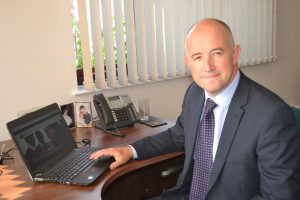
“Mental health must not be ignored,” said Mr Warren Honey, Headmaster at independent school, Hydesville Tower in Walsall
 The Institute for Public Policy Research has recently released its findings into the extent of mental health concerns in young adults.
The Institute for Public Policy Research has recently released its findings into the extent of mental health concerns in young adults.
Its description of a fivefold increase in the number of cases in the last ten years is a statistically significant confirmation of what has been seen in schools recently: children are suffering from increasing problems with mental health concerns, and the under-funded health support networks are struggling to cope. Whilst the report’s focus is on students entering higher education, it is often during the teenage years that these difficulties start to take hold.
Various suggestions are made of what is triggering such concern in the adolescents of this era and many of these are unsurprising and have been known about for some time. Academic pressures and social concerns featured most prominently.
The teenage mental health charity, stem4, surveyed 500 teenagers and discovered that the greatest anxieties arose from exam worries, work overload, friendship concerns, low self-confidence and body image fears.
More recently though, the “toxic environment” children find themselves growing up in has been added to by rhetoric about the world and our safety within it. Whether this is the thermonuclear posturing of Donald Trump and North Korea, or the fear caused by shocking incidents seen in Barcelona, Manchester and other cities over the summer, it is clear that growing up is even harder now than ever before.
“How can we help? As a school and as parents, we cannot isolate our children from all negative stories or events: it does not prepare them to stand on their own two feet and make their way in the world as decent citizens. Nor can we eradicate all of the pressures and concerns, many of which are as internally-driven as passed to them by the attitudes of society or their peers.
“Instead, we must all as adults give children the stable and supportive environments where they can grow up with confidence.
“In our school we use tutor sessions and PSHE lessons to encourage children to share any concerns openly, and for reassurance to be found in having others with similar views. Some children need more support than others so if needed, we assign mentors to those who require extra emotional support. Our Pastoral Managers work closely with children who may be causing concern and our individualised care of every child means that we are alerted to any changes in emotional well-being.
“We shouldn’t ignore the power of peer-to-peer support either. At Hydesville this comes in a number of forms, including a ‘reading buddy’ scheme across our Prep School where older children support their younger peers with their reading; and in our Senior School we use our vertical tutoring model as a way for older pupils helping younger pupils in tutor sessions by modelling more mature outlooks and approaches.
“I have been humbled by the sense of togetherness and community that has been present within Hydesville Tower School within these early days of my Headship, and I am already conscious of what a remarkable school it is. Working together, I know we will give each child a really strong chance of navigating the challenges of growing up.”
Don’t forget to follow us on Twitter and keep up-to-date with the latest news and features
